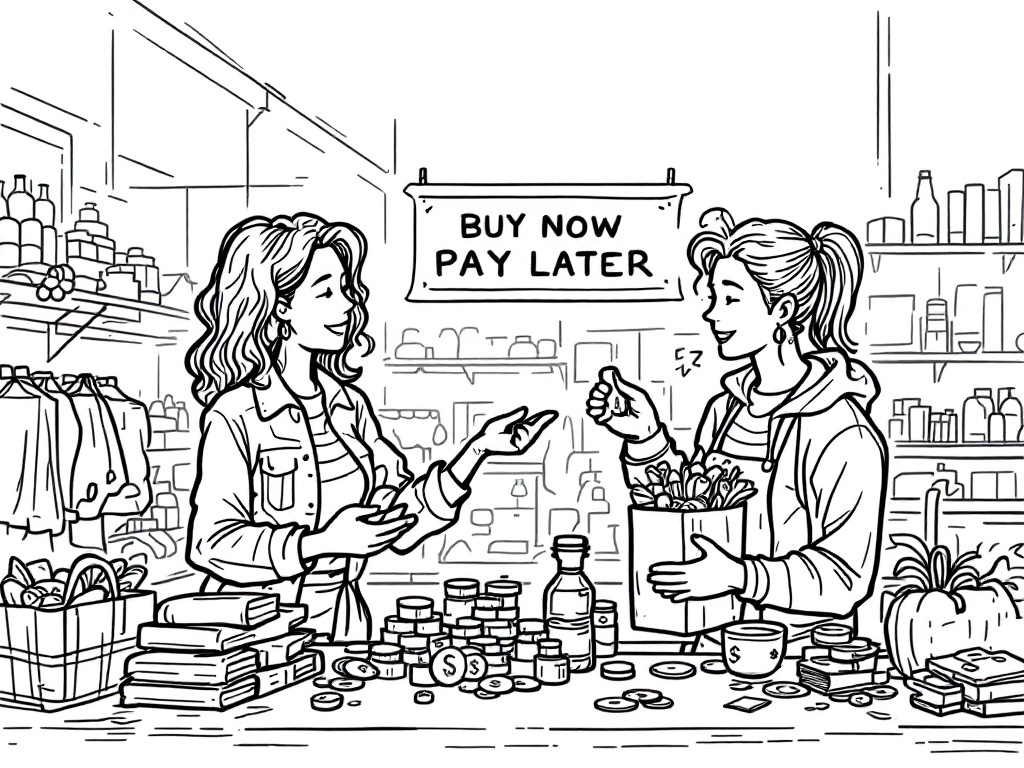Increasing Use of Buy Now, Pay Later for Groceries Strains U.S. Consumers

New York, Monday, 28 April 2025.
A survey shows a significant rise in Americans using ‘buy now, pay later’ plans for groceries. Notably, 41% admit to overdue payments, signaling potential financial distress among consumers.
Growing Dependency on BNPL for Daily Necessities
A recent survey conducted between April 2 and April 3, 2025, illustrates the increasing reliance on Buy Now, Pay Later (BNPL) services for purchasing groceries among Americans. Around 50% of the surveyed consumers, aged 18 to 79, reported using BNPL services, with 25% specifically using them for grocery purchases. This marks a significant uptick from 14% in 2024 and 21% in 2023, indicating that economic pressures continue to push more consumers toward these financial products [1].
Late Payments and Economic Implications
This growing dependency is accompanied by an alarming rise in late payments. In the past year, 41% of respondents acknowledged missing a BNPL payment, an increase from 34% observed in the previous year [1]. This trend reflects the financial strain afflicting many households, as factors like inflation and high-interest rates stretch budgets thin. Economic uncertainties, including tariff impositions, exacerbate these conditions, making financial commitments challenging for numerous individuals [1].
Expert Insight on BNPL Risks
Matt Schulz, chief consumer finance analyst at Lending Tree, underscores the importance of cautious use of BNPL services. He highlights that while BNPL can offer an interest-free respite between paychecks, the mismanagement of multiple loans can lead to significant financial risks. The survey details show that 60% of BNPL users manage multiple loans simultaneously, with about one-fourth juggling three or more loans at any given time [1].
Wider Economic Indicators
The broader economic landscape mirrors the challenges revealed by the survey. Earlier this year, companies such as Walmart and Delta Airlines signaled shifts in consumer demand, attributing it to financial pressures. Additionally, the adoption of BNPL for non-essential purchases, such as concert tickets or food delivery services, suggests that consumers are increasingly relying on credit for lifestyle maintenance. This tendency raises further concerns about the economy’s health and the long-term financial well-being of individuals [1].